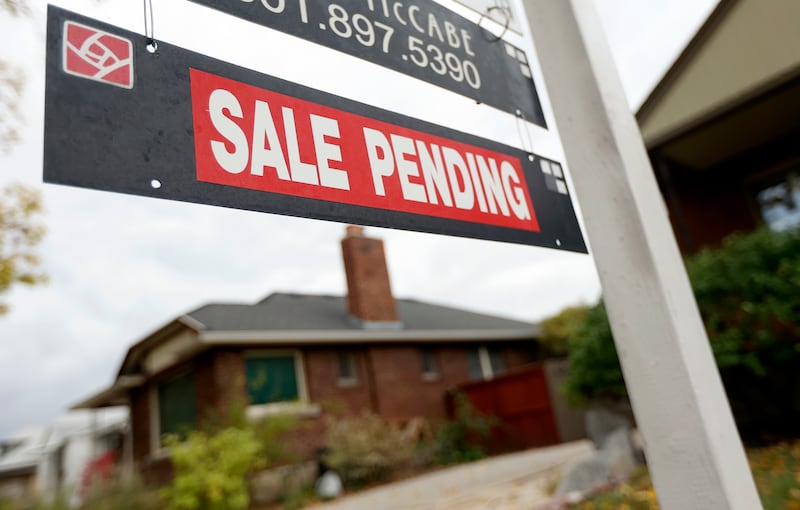It’s a tough question facing homebuyer hopefuls in today’s hectic housing market: Does it make more sense to buy or rent right now?
Especially as rents, like home prices, continue to skyrocket.
Unfortunately, there isn’t an easy, one-size-fits-all answer, especially as regional pockets of the U.S. housing market are particularly red hot and, in some places more than others, seeing what experts are deeming “overvalued” housing premiums.
However, The Wall Street Journal on Thursday published an analysis seeking to help buyers and renters answer that question. That analysis shows buying still makes sense — but buyers should keep in mind they’ll likely need to stay in their homes, in some cases years longer in order to begin seeing a return on their investment.
By the numbers: Nationwide, single-family rent prices went up over 13% year-over-year in February, the 11th straight month of record-level price increases, according to CoreLogic data released mid-April.
A shortage of available rentals contributed to the price jumps — along with home sale price increases. But compared to rents, home prices have gone up even more — by 20% year-over-year in February, likely pricing out even more would-be buyers and contributing to more Americans renting rather than buying, according to CoreLogic.
Now, interest rates are driving up home prices even more, leaving the housing market in a state of uncertainty as we wait to see whether the Federal Reserve’s rate hikes quell demand enough to level out price growth.
So should I rent or buy? Boiling it down, The Wall Street Journal’s analysis concluded the “increased cost to buy a home means that the time it takes to break even, compared with what one would pay to rent a comparable house, has gotten longer.”
The Journal’s analysis showed in 19 of the 20 markets included in CoreLogic’s Single-Family Rent Index, the markets used for its analysis, the estimated time to break even on a home purchase has increased.
For example, let’s look at Austin. Before the onset of the COVID-19 — when many Americans reevaluated their lives and relocated, especially to burgeoning areas like the West where they could buy larger homes at smaller price points — a typical Austin homebuyer would break even after 3.7 years in a new home, according to The Wall Street Journal’s analysis.
Fast forward to December 2021, after two years of accelerated home price increases in wake of COVID-19’s upheaval. Now, buyers need to stay in their homes at least 5.6 years in order for owning their home to pay off as an investment, according to the analysis.
“Home buyers who sell too early stand to lose big,” The Wall Street Journal reported.
Contrast that with an area like Miami, which the Journal deemed an “outlier market where asking rents have risen faster than home prices.” There, it will take less time to break even in a home investment, down from 2.5 years before the pandemic to now 2.3 years.
It’s important to note, as The Wall Street Journal did, the analysis makes several assumptions that could impact projections. It assumes “rents and home-price growth will both revert to historic levels, cooling from their current blistering, double-digit pace.” It also assumes a 10% down payment and assumes renters are making investments in the stock market if they choose not to buy a home.
What about in Utah? The Utah housing market was not included in the Journal’s analysis, but a comparable market western market that was included may be Phoenix, Arizona, where home prices have gone up at staggering rates. There, homebuyers are estimated to need to stay in their homes over three years for their investment to pay off.
The Mountain West region is the “hottest housing market in the country,” CoreLogic said in a report published in March, which zeroed in on vacation destinations that saw large home equity gains in 2021.
Utah saw nearly 25% in year-over-year home price growth in March, among the states with the highest price growth across the country, according to CoreLogic’s latest home price insight report.
Researchers from Florida Atlantic University have deemed Utah’s housing market, along with Boise, Idaho’s among the most “overvalued” in the country. But experts here locally have said it’s hard to imagine a “bubble” popping or prices dropping drastically — so long as the state continues to face a severe housing shortage as it continues to grow, both in population and popularity.
In Utah, demand continues to woefully outpace supply, experts say. They predict mortgage rates may slow home sale price growth — but not stop it while pricing out even more would-be homebuyers.


